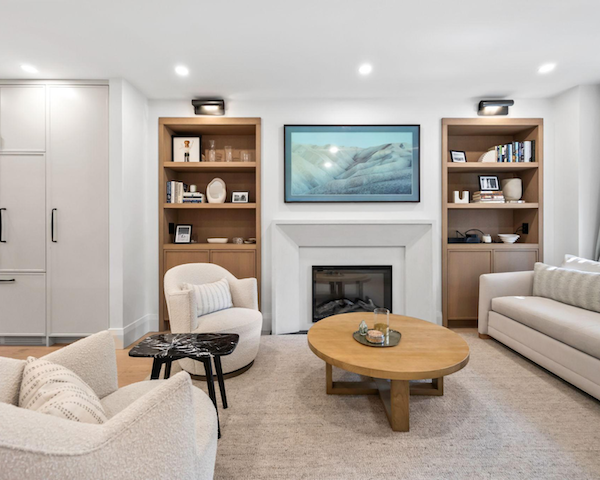Gearing up to buy a house can be exciting. It also means there’s a lot of details to remember. To truly find and secure a house that meets all of your needs, now and in the future, you’ll want to look past the surface appearance and focus on the structural quality.
It’s time to consider things that you might not even have thought about before. Today, we’ll shed some light on what you should look for in a house. In addition, we’ll give you some ideas on some of the things you do not want to see in a home you’re about to place an offer on. Along the way, you’ll pick up some valuable insight about the market before you decide to buy.
Want the latest facts when it comes to Midtown Real Estate? Subscribe to our newsletter for up-to-date statistics, tips, and early access to our listings right here.
What to Know Before Buying a House
It pays to take some time to research before committing to a home purchase. This means taking a step back to assess your resources, including how much you have for a down payment and whether you qualify for financing.
You’ll also want to get a general idea of what the market is doing. That’s not to say you should rush your decision or put your plans on hold based on certain conditions. However, knowing what is happening will allow you to fully capitalize on any advantages you may have as a buyer. Start by asking:
Are we in a balanced market? You are not in a bad position if there are an equal number of buyers and houses for sale. You may have some competition, but not too much, which also means you’ll have some negotiation power. However, you may need to be flexible and offer some concessions of your own.
Are we in a seller’s market? This is not the easiest scenario, but we can still work with it. You’ll have more competition over fewer available houses. By working with an experienced real estate team in your area, you can come to the table with every possible advantage the market will allow.
Are we in a buyer’s market? You’ll likely have plenty of listings and very little competition, which is ideal when the time comes to buy your house. Even so, a trained expert can help you take full advantage of this favourable market.
It’s not just a house you’re looking for – it’s a premium location. The posts below can help you choose your neighbourhood:
- How to Find Your Midtown Toronto Neighbourhood
- Moving On Up In Midtown: A Guide To Upgrading Your Home
- Everything You Need To Know About Buying A Home In The Annex
Things to Check When Buying a House
It’s always a good idea to conduct a home inspection before placing an offer on a house. If the market is favourable, you might make it a condition of your sale. If you’re in competition, you may not be in a position to make demands.
You can, however, request an inspection at your own expense. This small investment could save you a lot of future headaches and expenses if a house you have your eye on is less perfect than it seems.
In addition, you’ll want to view all potential properties with an experienced buyer agent at your side. A skilled professional will help you look past any beautiful staging and decor and see the actual bones of the house.
Some minor flaws will be an easy and relatively inexpensive fix. Others will make you reconsider whether you want to place an offer after all, especially if you don’t have the budget or ability to perform repairs and renovations.
Choosing a home isn’t just about what you can see. What you can’t see is equally important, if not more so. A qualified home inspector will ensure that the house is structurally sound, with no foundational issues or problems that indicate expensive repairs in your future. They will also examine whether the plumbing, electrical and HVAC systems are up to code.
Working with experts allows you to avoid any surprises after moving into your new house. Your experience should be joyful rather than worrisome.
Advice for First-Time Home Buyers
Buying a house in Ontario is both an exhilarating and nerve-wracking experience at any time. All of these sensations are amplified when it’s your first purchase. It’s not just the commitment and the price of the home to consider. You’ll want to keep your closing costs in mind, which can add another 3 to 5% to your total investment.
With a little guidance and a lot of support, you can overcome these challenges and start enjoying all of the advantages of homeownership. In addition to the advice we’ve already offered, there are also several government programs that can help make your first home more affordable.
Government Assistance Programs
The First Home Savings Account: Save as much as $8,000 per year to put toward your down payment. There is a lifetime cap of $40,000 on your contributions, but all dividends are yours to keep. After you make your purchase, you simply close the account, and there’s nothing to repay.
Home Buyer’s Plan: If you’ve been saving for your retirement, you can temporarily divert some of those funds to cover your down payment. The new guidelines allow you to withdraw a maximum of $60,000 from any tax-sheltered investment to purchase your house. The catch is that you do have to repay these funds within 15 years to ensure they remain tax free.
Land Transfer Tax Rebate: Closing costs can be prohibitive when buying your first house in Toronto as there is both a provincial and a municipal tax to cover. Fortunately, there is also a rebate on both that can save you a total of $8,475 ($4,000 provincially + $4,475 from the municipality) off the land transfer tax.
First-Time Home Buyer’s Tax Credit: You can claim a credit of $10,000 on your tax return the year you buy your house. It will reduce the amount owing by $1,500, potentially resulting in a refund.
At some point, you should also consider getting pre-approved for a mortgage. This will allow you to clarify your budget while giving you an unexpected competitive advantage. You can prove to the seller that you qualify for financing, which makes them more likely to accept your offer.
Looking for more practical advice on finding and buying your next home? You’ll get plenty of insight from the related reading below:
- When Should You Buy Your First House?
- Is an Upgraded Midtown Toronto Home Right For You?
- How to Spot a Great Home in Toronto
Our Top Real Estate Tips for Buyers
Everything looks great on paper if you have a high income, significant savings, few debts, and an outstanding credit score. You’re about to make a sound investment that will provide stability and a sense of accomplishment like nothing else.
But do you really feel ready to buy a house, both financially and emotionally? Your answers to the following will help you decide whether or not to move forward.
- Are you willing and able to handle the maintenance and repairs that go along with homeownership?
- Do you plan to stay in one place for the foreseeable future?
- Can you see yourself building a life in a particular neighbourhood?
If all of this checks out, it’s time to create your plan to buy your next house. A detailed wishlist of every feature you want and where you want to be will help you get the ball rolling. With a skilled real estate expert by your side, you will be unstoppable in your mission!
Are you ready to begin your home search? Our Midtown real estate team can help you find the right house at the best terms. Reach out to us at david@batorigroup.com, bobby@batorigroup.com or call (416) 485-7575 to learn more about our services.

Book a Consultation
Whether buying or selling, our team can help you achieve your real estate goals. Start the conversation today.





